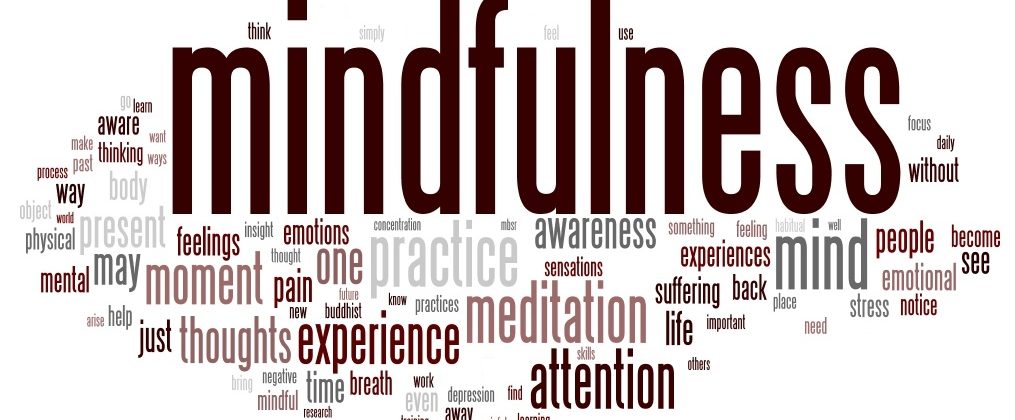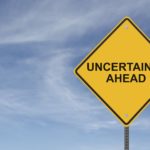Blog
Demystifying Mindfulness
Demystifying Mindfulness
We have heard so much in recent years about Mindfulness; how it can improve creativity, positively impact on team dynamics, reduce conflict and improve stress management. It seems to be to go to technique for Management Development and Leadership programmes.
The questions though are many. What exactly is it? How can it apply to work? Is it not all about sitting on mountainsides and avoiding the real world?
These are just some of the questions and, of course, there are many more.
In this short article we will look at what Mindfulness is, how it can benefit us individually and drive performance in our organisations
What is it?
Mindfulness is not so much about living in the now; it is about observing how we are living in the now. Although in reality as we observe how we are living in the now we do find we start to strip away old patterns of thought and behaviours. As we do this we start to experience the experience more than our view of it. In this way we start to live in the now! Such can be the complexity and circular nature of this area. Let me give an example. Often when I work with management teams I am surprised at how poor our listening skills are. We have all watched on as people disagree with each other and seem somehow to ignore the fact they are really in agreement.
What is happening here is a lack of Mindfulness. We enter the conversation unaware of our own filters and biases. We do not listen to what the other person is saying but we overlay and hear what we think they are going to say. We assume they will make a point as the stereotypical accountant, marketer, engineer etc. and we react from that bias rather than what they may actually be saying. In this way we do not experience the experience; we experience our view or expectation of it.
Mindfulness allows us to tackle this impediment. Firstly, we become aware of our own biases and simply don’t invite them to the conversation. Secondly, we learn to hear the other for the first time; we experience the other from a fresh perspective and truly engage with them, with what they are saying, with their motivations, their fears and expectations and, indeed, their biases. Thirdly, in doing this we build understanding and through understanding we build relationships.
So Mindfulness is simply the bringing of non-judgemental or compassionate awareness to our own actions, thoughts and behaviours.
Characteristics of Mindfulness
One characteristic of Mindfulness is the gentle, forensic inquiry that takes place. We do not just sit in the Lotus position and hum the Aum sound (although this has its benefits too.) We do in a forensic, gentle but disciplined way identify, recognise and note our thoughts as they arise; we start to notice patterns and we work on how we can eliminate these thoughts and patterns so we can fully engage with events as we encounter them rather than engage through the lens of previous experiences or artificial expectations.
Another characteristic of Mindfulness is full engagement. When we remove our expectations, beliefs and other filters and biases we fully engage with those around us. We are all familiar with the idea of seeing the wood for the trees. We understand that saying as telling us we should see the big picture and not get lost between the trees in front of us. This is good learning but only half of the tale. We can also understand the learning as suggesting we should see the detail of the tree, the colour and shape of the leaves, the pattern of the bark, the smell and touch etc. Mindfulness allows us to engage fully in the here and now, the beauty of what is in front of us and also be cognisant of the big picture, where we are and where we are heading.
An important characteristic of Mindfulness is also calm, balance and centeredness. We see these events for what they are, ultimately ephemeral and external. We recognise our reactions for what they are – ours. They say more about us than they do about the event itself. We learn not to react to the event itself or what we thought it would be. We choose to engage with the event. This enables us to empower our reaction. We engage curiously and from a place of non-judgement. We do not seek to be right or fight a previous battle. This creates a really powerful dynamic, energetic and fully engaged way of behaving and working
Another notable characteristic of Mindfulness is its energetic nature. This surprises people as we envisage the monk sitting peacefully on the lake shore. What actually happens is we expend less energy on the expectations, thoughts, patterns, filters and biases. We stop twisting what is being said to fit in with all those. This leaves a huge amount of energy available to engage fully. We stop drawing energy from others and start to bring energy to the engagement. This empowers those around us as do not drain their energy to fight the previous battle or force them to rearticulate their position because we, again, are not listening. This energetic engagement inspires and motivates others. We build trust and sustainable relationships.
How does Mindfulness benefit me?
It has an impact on stress management. As individuals we find we become less stressed by others behaviours; we become less prone to reacting from our habits. In this way we bring more balance to our emotions. We realise we are buffeted less by the swirling winds of emotions and can, as we recognise and befriend them, ride the waves created by them. We are less at their mercy and better equipped to recognise what they are telling us about our values, the people we associate with and would wish to associate with. Reducing this stress leaves us with more clarity and energy for our own lives.
Importantly, the process allows us to understand whose life we are living. Too often I see people who are very stressed though living a life they are expected to lead. When we go through the motions rather than living our own life we get stressed. However, similar to a lobster in a slowly heating pot we don’t notice. We tell ourselves we are doing fine as we seek outlets in alcohol, affairs, material goods and other avoidance.
Mindfulness allows us to check in with ourselves. We can examine compassionately whether we are engaging in activity that serves us well rather than impeding us.
How does Mindfulness benefit my organisation?
The benefits for organisations are huge. Too often I see management teams operating at far less than the sum of their parts. This is mainly down to an inability to communicate, to listen, recognise and respect others’ skill sets; to discuss and reach a conclusion and follow through on that rather than revisiting it weeks later.
Mindfulness helps us understand and engage with others better. We see increased cooperation, better decision making, improved creativity and less time wasted. This improvement at management level is mirrored by staff as they tend to exhibit the behaviours set by their seniors. If you wish to change a culture first change your own behaviour to exhibit that new cultural norm. Each event whether a management meeting, customer engagement or staff review becomes an opportunity to fully engage from a position of non-judgement, curiosity and support. This enthuses and energises the organisation and allows performance at a level greater than the sum of the parts
One final point to address is whether Mindfulness is soft and some wishy, washy hope that people will perform better? To answer that question let me pose one for you.
If you are fully centred and balanced, conscious of the value of yourself and your time and that of the people around you, fully respectful of others and their journey for how long do you think you will tolerate and enable those who are energetic vampires, those who disrespect yourself and others?
Hint: Mindfulness is compassionate, energising, decisive and empowering.
If you would like to understand more or discuss how you or your organisation can benefit from Mindfulness contact [email protected] or call 086 623 5551




